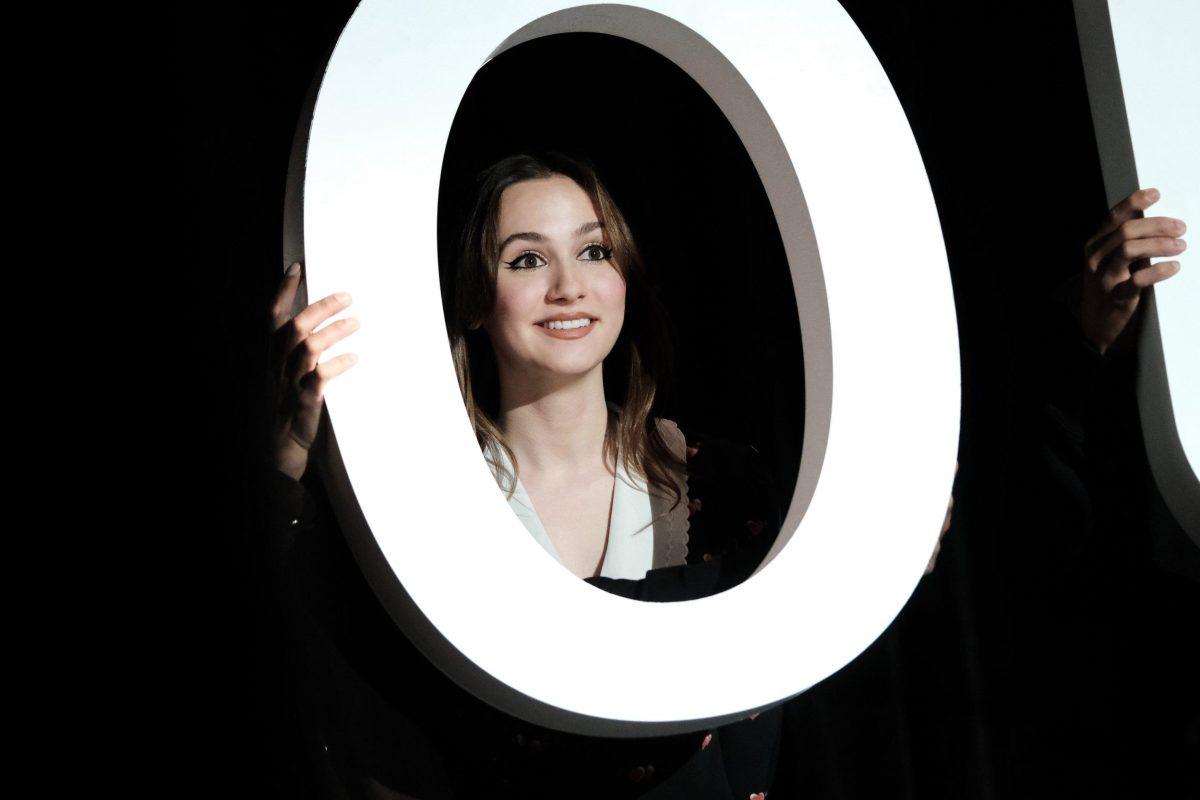Note: This article is a satirical piece based on season two, episode eight of “Euphoria.”
What is real, and what is fiction? This is the question Lexi Howard asks in her theatrical debut, “Our Life.” In a time-bending, meta piece on the tribulations of high school life, Howard exposes the reality of biographical storytelling: Oftentimes, it’s not reality.
The play started out with the classic dilemma of the overlooked, shy teenager struggling in high school. Family deaths, relationship trouble and substance abuse all contribute to the turmoil within the production. What makes Howard’s “Our Life” stand out from that typical melodramatic path is the way the writer-actor bends time to fit her memory of events.
This time-bending through-line in the play is hinted at through Rue Bennett’s oft-repeated quote from her father, “Memories exist outside of time and have no beginning or end.” Much like this quote, the play flashes back and forward in time from junior high to high school, emphasizing the way our memory erodes and recontextualizes as we grow.
During one of the many interludes in Howard’s play, I began humming Bonnie Tyler’s “Holding Out For a Hero,” but was rudely interrupted by the loud clacks of heels against the floor. A young woman — she looked about 24 — was walking toward the stage in an appropriate fit of rage. All eyes shifted away from the characters to the woman who was seemingly ruining the play. She climbed on stage, clapping slowly as the spotlight turned toward her.
Who was this woman? Is this part of the play? Is this shoddy lighting intentional? Confusion spread throughout the audience as she launched into a destructive monologue tearing down the actors and the work of Lexi Howard. This woman was actually Cassie Howard, the sister of Lexi. Cassie continued to monologue, almost like a critic reviewing art scathingly. The play shifted toward interactive territory as the audience became more responsive and excited.
“That’s racist,” an audience member howled as Cassie compared the melodrama of Lexi’s life in Cassie’s shadow to the turmoil of female life in Afghanistan.
“Is this like part of the play?” another audience member asked before Cassie dragged Lexi onto the stage. In an extension of the play’s plot, Cassie began overshadowing Lexi’s time in the spotlight by shaming her live in front of an audience. That’s when it became clear to me that Cassie’s interruption was part of the play.
The brilliance of “Our Life” was apparent. Even in Lexi’s dream, she is relegated to a bystander. Her sister’s decisions constantly outweigh her own, both on and off stage.
It’s beautiful, tragic and clever storytelling that showcases the brilliant thematic through-line of the play. Even the title, “Our Life,” extends this theme of constant relegation: this isn’t Lexi’s own story; she must share the melodrama.
Continuing on, the real-life mother of Lexi and Cassie came to the stage, directly addressing the audience before complimenting Ethan, the actor portraying the mother. Cassie continued berating her sister before other audience members joined in the play. Cassie and another woman in the audience began arguing about their simultaneous relationship with the character Jake.
As expletives were shouted, I realized that Lexi Howard had shifted us toward a third timeline in the play—the present. We were now watching the real-life fallout between the characters Hallie and Marta, over the boy Marta was then dating. Time and space were being bent in front of my eyes, and all I could do was bask in the awe of it all.
The lights shut off as the play seemed to be shifting scenes back to before Cassie interrupted. However, as Hallie explored her sexuality on stage riding a horse, Cassie screamed and tackled Hallie down to the ground, beating her. We then saw “Our Life” critiquing memory yet again, as Cassie’s future self was attacking her past self out of shame. Her actual mother attempted to break up the fight but failed. The woman who yelled at Cassie offstage, then rushed onto the stage and gave Cassie a huge slap before chasing her around the stage.
Other women from the audience entered the fight as cast members attempted to break it up. Around and around the mechanical horse, the riot went as the audience cheered and screamed from shock and awe. It was the most visceral reaction I’ve ever seen from a live audience in any play, local or otherwise. The audience pulled their phones out to record — still unsure of the fiction of it all — as the fight exited the stage.
The curtain closed, and a piano interlude was played. Shortly after, the audience began chanting “Lexi, Lexi, Lexi” repeatedly to get the show rolling again. She came onto the stage and announced some technical difficulties, adding to the reality vs. fiction theme of the play. She then spoke about her friend who missed the show. My heart goes out to whoever the mystery person is because I would have to be dead or in jail to miss one of Lexi Howard’s ambitious productions.
Parallel deaths in the characters’ families played out on stage as the show continued. The play ended with a bittersweet revival of Luna and Jade’s friendship as the curtain closed.
“Our Life” is a beautiful reflection on the memories of young life and the inevitable endings to all our relationships. What young playwright and actor Lexi Howard has accomplished is simply prodigious, and I cannot wait to see what art she creates next, even if I have to wait until 2024.






